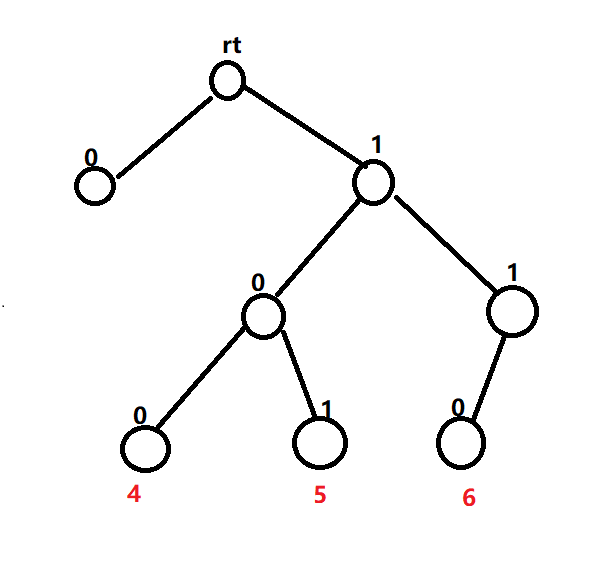- Neo4j GDS-02-graph-data-science 插件库安装实战笔记
老马啸西风
neo4jneo4j笔记数据库图数据结构算法
neo4japoc系列Neo4jAPOC-01-图数据库apoc插件介绍Neo4jAPOC-01-图数据库apoc插件安装neo4jonwindows10Neo4jAPOC-03-图数据库apoc实战使用使用Neo4jAPOC-04-图数据库apoc实战使用使用apoc.path.spanningTree最小生成树Neo4jAPOC-05-图数据库apoc实战使用使用labelFilterNeo4
- Neo4j GDS-02-graph-data-science 简单聊一聊图数据科学插件库
老马啸西风
neo4jneo4j数据库算法图数据库开源
neo4japoc系列Neo4jAPOC-01-图数据库apoc插件介绍Neo4jAPOC-01-图数据库apoc插件安装neo4jonwindows10Neo4jAPOC-03-图数据库apoc实战使用使用Neo4jAPOC-04-图数据库apoc实战使用使用apoc.path.spanningTree最小生成树Neo4jAPOC-05-图数据库apoc实战使用使用labelFilter详细介绍
- Neo4j GDS-02-graph-data-science 插件库安装实战笔记
后端java
neo4japoc系列Neo4jAPOC-01-图数据库apoc插件介绍Neo4jAPOC-01-图数据库apoc插件安装neo4jonwindows10Neo4jAPOC-03-图数据库apoc实战使用使用Neo4jAPOC-04-图数据库apoc实战使用使用apoc.path.spanningTree最小生成树Neo4jAPOC-05-图数据库apoc实战使用使用labelFilterNeo4
- Neo4j GDS-04-图的中心性分析介绍
后端java
neo4japoc系列Neo4jAPOC-01-图数据库apoc插件介绍Neo4jAPOC-01-图数据库apoc插件安装neo4jonwindows10Neo4jAPOC-03-图数据库apoc实战使用使用Neo4jAPOC-04-图数据库apoc实战使用使用apoc.path.spanningTree最小生成树Neo4jAPOC-05-图数据库apoc实战使用使用labelFilterNeo4
- Neo4j GDS-02-graph-data-science 简单聊一聊图数据科学插件库
后端java
neo4japoc系列Neo4jAPOC-01-图数据库apoc插件介绍Neo4jAPOC-01-图数据库apoc插件安装neo4jonwindows10Neo4jAPOC-03-图数据库apoc实战使用使用Neo4jAPOC-04-图数据库apoc实战使用使用apoc.path.spanningTree最小生成树Neo4jAPOC-05-图数据库apoc实战使用使用labelFilter是什么?
- 字典树(Trie) 理论知识复习及精选例题解析
BrainWen1
算法javac++数据结构pythonleetcodevscode
字典树理论知识复习及精选例题解析一、字典树理论知识二、精选例题解析例题1.P8306【模板】字典树例题2.P2580于是他错误的点名开始了例题3.P10471最大异或对TheXORLargestPair三、字典树的使用思路和细节使用思路细节注意四、总结一、字典树理论知识1.定义字典树(Trie)字典树(Trie)字典树(Trie),又称前缀树,是一种树形数据结构,用于高效地存储和检索字符串集合。它
- 代码随想录算法营Day62 | 寻宝(Prim算法,kruskal算法)
寂枫zero
算法python
寻宝(Prim算法,kruskal算法)在世界的某个区域,有一些分散的神秘岛屿,每个岛屿上都有一种珍稀的资源或者宝藏。国王打算在这些岛屿上建公路,方便运输。不同岛屿之间,路途距离不同,国王希望你可以规划建公路的方案,如何可以以最短的总公路距离将所有岛屿联通起来(注意:这是一个无向图)。给定一张地图,其中包括了所有的岛屿,以及它们之间的距离。以最小化公路建设长度,确保可以链接到所有岛屿。最小生成树P
- 【春招笔试真题】饿了么2025.03.07-开发岗真题
春秋招笔试突围
最新互联网春秋招试题合集java算法网络
饿了么2025.03.07-开发岗题目1️⃣:统计01串中0和1的个数,通过计算可能的交换方式确定不同字符串数量2️⃣:使用模板匹配技术识别验证码图片中的"#"符号分布模式3️⃣:构建字典树(Trie)优化异或查询,实现高效的数字黑板游戏整体难度这套题目整体难度适中,由简到难逐步递进:第一题是基础的计数问题,需要理解交换操作的特性第二题是模式识别问题,需要实现模板匹配第三题是高级数据结构应用,需要
- 【面经】CPP经典面试手撕{LRUCache、字典树、布隆过滤器}
阿猿收手吧!
面经面试职场和发展c++开发语言
文章目录LRUCache字典树布隆过滤器LRUCacheclassLRUCache{usingListIt=list>::iterator;list>_LRUlist;int_capacity;unordered_map_hashmap;public:LRUCache(intcapacity):_capacity(capacity){}intget(intkey){autoit=_hashmap.
- LeetCode 热题 100_实现 Trie (前缀树)(54_208_中等_C++)(图;前缀树;字典树)
Dream it possible!
LeetCode热题100leetcodec++算法
@[TOC](LeetCode热题100_实现Trie(前缀树)(54_208))题目描述:Trie(发音类似“try”)或者说前缀树是一种树形数据结构,用于高效地存储和检索字符串数据集中的键。这一数据结构有相当多的应用情景,例如自动补全和拼写检查。请你实现Trie类:Trie()初始化前缀树对象。voidinsert(Stringword)向前缀树中插入字符串word。booleansearch
- 算法分析-贪心算法
old-handsome
算法贪心算法算法
文章目录前言一、定义二、特点三、使用场景适用场景:何时使用部分背包问题活动安排问题最优装载问题最小生成树Prim算法:按点检索,适用于稠密图Kruskal算法:并查集+最小生成树Dijkstra算法:不能存在负权边,松弛操作总结前言本博客仅做学习笔记,如有侵权,联系后即刻更改科普:贪心算法一、定义贪心算法是指在对问题进行求解时,在每一步选择中都采取最好或者最优(最有利)的选择,从而希望最终结果是最
- 洛谷模板汇整
Alaso_shuang
算法分类算法
普及-P3378【模板】堆P3367【模板】并查集P1177【模板】快速排序P3383【模板】线性筛素数P3370【模板】字符串哈希P3366【模板】最小生成树P1226【模板】快速幂||取余运算普及/提高-P3385【模板】负环P3865【模板】ST表P8306【模板】字典树P5788【模板】单调栈P3811【模板】乘法逆元P4549【模板】裴蜀定理P3372【模板】线段树1P3382【模板】三
- 算法研究员技术图谱和学习路径
执于代码
开发者职业加速服务算法学习
一、基础阶段:构建算法与数学根基数据结构与基础算法数据结构:数组、链表、栈、队列、哈希表、树(二叉搜索树、堆、字典树)、图等。基础算法:排序(快速排序、堆排序)、查找(二分查找)、递归与分治、贪心算法、简单动态规划(背包问题)、字符串匹配(KMP、Rabin-Karp)、图遍历(BFS/DFS)等。实践方法:通过LeetCode等平台刷题(如“剑指Offer”系列),掌握算法原理与代码实现。数学基
- 2022.4.1 图论题目汇总
LGoGoGo!
leetcodejava数据结构职场和发展算法
文章目录前言1.图论基础2.环检测算法3.拓扑排序算法4.判断二分图[5.判断二分图II]6.并查集(UNION-FIND)算法7.最小生成树算法[8.DIJKSTRA算法]9.名人问题前言今天刷完图论部分的题目了,在这篇文章把之前做的题和知识点总结起来,方便以后查找。1.图论基础(https://blog.csdn.net/alyzajlm/article/details/123656979?s
- PTA 最小生成树与拓扑排序
abyss_miracle
数据结构基础数据结构c++
最小生成树特点:1.是一棵树。无回路,N个顶点有N-1条边。2.是生成树。包含全部顶点,N-1条边都在图里。3.边的权重和最小。主要包括两种算法,一种是让小树慢慢长大的Prim算法(先定一个顶点为起点,然后每次都找到离这棵树最近的那个顶点,将他归进树内,直到正好用掉顶点数N-1条边)。二是Kruskal算法,将一个个森林(一开始每个节点都是森林)连成树。每次在图中找所有的边中权重最小的那个边,将其
- 【Day47 LeetCode】图论问题 Ⅴ
银河梦想家
leetcode图论算法
一、图论问题Ⅴ今天学习最小生成树算法–prim算法和kruskal算法。最小生成树是所有节点的最小连通子图,有n个节点则必有n-1条边将所有节点连接起来。如何选取n-1条边使得图中所有节点连接到一起,并且边的权值和最小,这就是最小生成树问题。1、prim算法–寻宝问题prim算法的思想是每次寻找距离最小生成树最近的节点,并加入到最小生成树中。prim主要有三步:1、选距离生成树最近节点;2、最近节
- 算法|图论|BFS和DFS
锅巴xx
算法算法图论宽度优先c++笔记学习
图论|BFS和DFS1.BFS2.DFS心有猛虎,细嗅蔷薇。你好朋友,这里是锅巴的C\C++学习笔记,常言道,不积跬步无以至千里,希望有朝一日我们积累的滴水可以击穿顽石。BFSBFS广度优先搜索BFS(Breadth-First-Search),是一种遍历算法,也是很多重要的图的算法的原型(如:Dijstra单源最短路径算法和Prim最小生成树算法)。属于一种盲目搜寻法,目的是系统地展开并检查图中
- 2016年2月小记录
weixin_30485799
开发工具
2.2发现自己bzoj第一版屯了不少题,就先A几道吧。bzoj1016:[JSOI2008]最小生成树计数,就是kruskal求出最小生成树后暴力一下就行了,其实不知道为什么可以过,反正就是可以过。bzoj1007:[HNOI2008]水平可见直线这题的结论太强了,按斜率排序,维护一个栈,判断交点就行啦,然后被卡精度了,不过这题idea特别好bzoj1011:[HNOI2008]遥远的行星这题就是
- 图论之最小生成树计数(最小生成树的应用)
Romanticroom
图论算法
题目2401:信息学奥赛一本通T1492-最小生成树计数时间限制:2s内存限制:192MB提交:18解决:8题目描述原题来自:JSOI2008现在给出了一个简单无向加权图。你不满足于求出这个图的最小生成树,而希望知道这个图中有多少个不同的最小生成树。(如果两颗最小生成树中至少有一条边不同,则这两个最小生成树就是不同的)。输入格式第一行包含两个数,n和m,表示该无向图的节点数和边数,每个节点用1∼n
- 图论 之 最小生成树
JNU freshman
蓝桥杯算法图论算法蓝桥杯
文章目录题目1584.连接所有点的最小费用最小生成树MST,有两种算法进行求解,分别是Kruskal算法和Prim算法Kruskal算法从边出发,适合用于稀疏图Prim算法从顶点出发,适合用于稠密图:基本思想是从一个起始顶点开始,逐步扩展生成树,每次选择一条连接已选顶点和未选顶点的最小权重边,直到所有顶点都被包含在生成树中。Prim算法的基本步骤:初始化:选择一个起始顶点,将其加入生成树中。选择最
- 图论篇--代码随想录算法训练营第五十七天打卡| 最小生成树问题
無量空所
leetcode算法图论数据结构c++学习
题目链接:53.寻宝(第七期模拟笔试)题目描述:在世界的某个区域,有一些分散的神秘岛屿,每个岛屿上都有一种珍稀的资源或者宝藏。国王打算在这些岛屿上建公路,方便运输。不同岛屿之间,路途距离不同,国王希望你可以规划建公路的方案,如何可以以最短的总公路距离将所有岛屿联通起来(注意:这是一个无向图)。给定一张地图,其中包括了所有的岛屿,以及它们之间的距离。以最小化公路建设长度,确保可以链接到所有岛屿。解题
- 大一计算机的自学总结:前缀树(字典树、Trie树)
WBluuue
c++算法数据结构leetcode深度优先
前言前缀树,又称字典树,Trie树,是一种方便查找前缀信息的数据结构。一、字典树的实现1.类描述实现#includeusingnamespacestd;classTrieNode{public:intpass=0;intend=0;TrieNode*nexts[26]={NULL};};TrieNode*root=NULL;voidinsert(stringword){TrieNode*node=
- 图论- 经典最小生成树算法
左灯右行的爱情
图论算法
最小生成树算法什么是最小生成树Kruskal算法关键代码实现Prim最小生成树算法Kruskal和Prim算法的区别为什么Prim算法不需要判断成环,但Kruskal需要什么是最小生成树在图中找一棵包含图中所有节点的树,且权重和最小的那棵树就叫最小生成树.如下:右侧生成树的权重和显然比左侧生成树的权重和要小。(但是它并不是最小的,这里只是比较一下不同的树)Kruskal算法最小生成树是若干条边的集
- 面试经典150题——最长公共前缀
菜菜的小彭
java面试经典150题面试职场和发展leetcode算法java
面试经典150题day20题目来源我的题解方法一横向遍历方法二纵向遍历方法三分治方法四字典树题目来源力扣每日一题;题序:14我的题解方法一横向遍历两两字符串找最长公共前缀时间复杂度:O(nL)。n表示数组的长度,L表示来两两字符创的最长公共前缀。空间复杂度:O(1)publicStringlongestCommonPrefix(String[]strs){Stringpre=strs[0];for
- 图论---最小生成树
漫漫信奥之路
图论图论算法数据结构
树是一种特殊的图,具有很多特殊的性质。生成树问题研究的是将图中的所有顶点保留,但只选择图中的部分边,得到一棵树(也就是图的生成树)的问题。最小生成树则是在这些生成树中,边权之和最小的生成树。可以使用prime算法或者kruskal算法求解最小生成树。生成树相关概念1、生成树定义在一个V个点的无向连通图中,取其中V-1条边,并连接所有的顶点,所得到的子图称为原图的一棵生成树2、树的属性树是图的一种特
- 《六月集训》(第二十三天)——字典树
EchoRouRou
leetcodec++leetcoe字典树
文章目录前言一、练习题目二、算法思路三、源码剖析前言欢迎大家积极在评论区留言发表自己的看法,知无不言,言无不尽,养成每天刷题的习惯,也可以自己发布优质的解题报告,供社区一同鉴赏,吸引一波自己的核心粉丝。今天是六月集训第二十三天:字典树一、练习题目472.连接词面试题17.15.最长单词二、算法思路1、472.连接词:题目有点难。还在从基础看起,2、面试题17.15.最长单词:三、源码剖析//472
- 常见数据结构的简介(基本概念 & 操作 & 时间复杂度)
子诚之
编程
文章目录0.概览1.线性表、栈和队列2.数组2.1基本操作1)时间复杂度2)案例3.字符串3.1存储结构3.2基本操作1)时间复杂度2)案例:最大公共字符串4.二叉树4.1储存结构4.2基本操作1)时间复杂度2)案例:使用字典树判断字符串是否存在5.哈希/散列表5.1哈希函数5.2基本操作1)时间复杂度2)案例:构建哈希表《重学数据结构与算法》学习笔记0.概览数据结构增删查特点线性表变长栈队列数组
- 最小生成树(prim算法)
DanmF--
算法c++
1.朴素prim算法(重在理解prim算法思想)#includeusingnamespacestd;usingll=longlong;constintN=300+9;constllinf=4e18;lla[N][N],d[N],n,m;bitsetintree;voidsolve(){cin>>n>>m;memset(a,0x3f,sizeofa);memset(d,0x3f,sizeofd);f
- 图论练习题(存起来练)
Wuliwuliii
图论练习题
=============================以下是最小生成树+并查集======================================【HDU】1213HowManyTables基础并查集★1272小希的迷宫基础并查集★1325&&poj1308IsItATree?基础并查集★1856Moreisbetter基础并查集★1102ConstructingRoads基础最小生成
- 【HDOJ图论题集】【转】
aiyuneng5167
java人工智能
1=============================以下是最小生成树+并查集======================================2【HDU】31213HowManyTables基础并查集★41272小希的迷宫基础并查集★51325&&poj1308IsItATree?基础并查集★61856Moreisbetter基础并查集★71102ConstructingRoad
- java封装继承多态等
麦田的设计者
javaeclipsejvmcencapsulatopn
最近一段时间看了很多的视频却忘记总结了,现在只能想到什么写什么了,希望能起到一个回忆巩固的作用。
1、final关键字
译为:最终的
&
- F5与集群的区别
bijian1013
weblogic集群F5
http请求配置不是通过集群,而是F5;集群是weblogic容器的,如果是ejb接口是通过集群。
F5同集群的差别,主要还是会话复制的问题,F5一把是分发http请求用的,因为http都是无状态的服务,无需关注会话问题,类似
- LeetCode[Math] - #7 Reverse Integer
Cwind
java题解MathLeetCodeAlgorithm
原题链接:#7 Reverse Integer
要求:
按位反转输入的数字
例1: 输入 x = 123, 返回 321
例2: 输入 x = -123, 返回 -321
难度:简单
分析:
对于一般情况,首先保存输入数字的符号,然后每次取输入的末位(x%10)作为输出的高位(result = result*10 + x%10)即可。但
- BufferedOutputStream
周凡杨
首先说一下这个大批量,是指有上千万的数据量。
例子:
有一张短信历史表,其数据有上千万条数据,要进行数据备份到文本文件,就是执行如下SQL然后将结果集写入到文件中!
select t.msisd
- linux下模拟按键输入和鼠标
被触发
linux
查看/dev/input/eventX是什么类型的事件, cat /proc/bus/input/devices
设备有着自己特殊的按键键码,我需要将一些标准的按键,比如0-9,X-Z等模拟成标准按键,比如KEY_0,KEY-Z等,所以需要用到按键 模拟,具体方法就是操作/dev/input/event1文件,向它写入个input_event结构体就可以模拟按键的输入了。
linux/in
- ContentProvider初体验
肆无忌惮_
ContentProvider
ContentProvider在安卓开发中非常重要。与Activity,Service,BroadcastReceiver并称安卓组件四大天王。
在android中的作用是用来对外共享数据。因为安卓程序的数据库文件存放在data/data/packagename里面,这里面的文件默认都是私有的,别的程序无法访问。
如果QQ游戏想访问手机QQ的帐号信息一键登录,那么就需要使用内容提供者COnte
- 关于Spring MVC项目(maven)中通过fileupload上传文件
843977358
mybatisspring mvc修改头像上传文件upload
Spring MVC 中通过fileupload上传文件,其中项目使用maven管理。
1.上传文件首先需要的是导入相关支持jar包:commons-fileupload.jar,commons-io.jar
因为我是用的maven管理项目,所以要在pom文件中配置(每个人的jar包位置根据实际情况定)
<!-- 文件上传 start by zhangyd-c --&g
- 使用svnkit api,纯java操作svn,实现svn提交,更新等操作
aigo
svnkit
原文:http://blog.csdn.net/hardwin/article/details/7963318
import java.io.File;
import org.apache.log4j.Logger;
import org.tmatesoft.svn.core.SVNCommitInfo;
import org.tmateso
- 对比浏览器,casperjs,httpclient的Header信息
alleni123
爬虫crawlerheader
@Override
protected void doGet(HttpServletRequest req, HttpServletResponse res) throws ServletException, IOException
{
String type=req.getParameter("type");
Enumeration es=re
- java.io操作 DataInputStream和DataOutputStream基本数据流
百合不是茶
java流
1,java中如果不保存整个对象,只保存类中的属性,那么我们可以使用本篇文章中的方法,如果要保存整个对象 先将类实例化 后面的文章将详细写到
2,DataInputStream 是java.io包中一个数据输入流允许应用程序以与机器无关方式从底层输入流中读取基本 Java 数据类型。应用程序可以使用数据输出流写入稍后由数据输入流读取的数据。
- 车辆保险理赔案例
bijian1013
车险
理赔案例:
一货运车,运输公司为车辆购买了机动车商业险和交强险,也买了安全生产责任险,运输一车烟花爆竹,在行驶途中发生爆炸,出现车毁、货损、司机亡、炸死一路人、炸毁一间民宅等惨剧,针对这几种情况,该如何赔付。
赔付建议和方案:
客户所买交强险在这里不起作用,因为交强险的赔付前提是:“机动车发生道路交通意外事故”;
如果是交通意外事故引发的爆炸,则优先适用交强险条款进行赔付,不足的部分由商业
- 学习Spring必学的Java基础知识(5)—注解
bijian1013
javaspring
文章来源:http://www.iteye.com/topic/1123823,整理在我的博客有两个目的:一个是原文确实很不错,通俗易懂,督促自已将博主的这一系列关于Spring文章都学完;另一个原因是为免原文被博主删除,在此记录,方便以后查找阅读。
有必要对
- 【Struts2一】Struts2 Hello World
bit1129
Hello world
Struts2 Hello World应用的基本步骤
创建Struts2的Hello World应用,包括如下几步:
1.配置web.xml
2.创建Action
3.创建struts.xml,配置Action
4.启动web server,通过浏览器访问
配置web.xml
<?xml version="1.0" encoding="
- 【Avro二】Avro RPC框架
bit1129
rpc
1. Avro RPC简介 1.1. RPC
RPC逻辑上分为二层,一是传输层,负责网络通信;二是协议层,将数据按照一定协议格式打包和解包
从序列化方式来看,Apache Thrift 和Google的Protocol Buffers和Avro应该是属于同一个级别的框架,都能跨语言,性能优秀,数据精简,但是Avro的动态模式(不用生成代码,而且性能很好)这个特点让人非常喜欢,比较适合R
- lua set get cookie
ronin47
lua cookie
lua:
local access_token = ngx.var.cookie_SGAccessToken
if access_token then
ngx.header["Set-Cookie"] = "SGAccessToken="..access_token.."; path=/;Max-Age=3000"
end
- java-打印不大于N的质数
bylijinnan
java
public class PrimeNumber {
/**
* 寻找不大于N的质数
*/
public static void main(String[] args) {
int n=100;
PrimeNumber pn=new PrimeNumber();
pn.printPrimeNumber(n);
System.out.print
- Spring源码学习-PropertyPlaceholderHelper
bylijinnan
javaspring
今天在看Spring 3.0.0.RELEASE的源码,发现PropertyPlaceholderHelper的一个bug
当时觉得奇怪,上网一搜,果然是个bug,不过早就有人发现了,且已经修复:
详见:
http://forum.spring.io/forum/spring-projects/container/88107-propertyplaceholderhelper-bug
- [逻辑与拓扑]布尔逻辑与拓扑结构的结合会产生什么?
comsci
拓扑
如果我们已经在一个工作流的节点中嵌入了可以进行逻辑推理的代码,那么成百上千个这样的节点如果组成一个拓扑网络,而这个网络是可以自动遍历的,非线性的拓扑计算模型和节点内部的布尔逻辑处理的结合,会产生什么样的结果呢?
是否可以形成一种新的模糊语言识别和处理模型呢? 大家有兴趣可以试试,用软件搞这些有个好处,就是花钱比较少,就算不成
- ITEYE 都换百度推广了
cuisuqiang
GoogleAdSense百度推广广告外快
以前ITEYE的广告都是谷歌的Google AdSense,现在都换成百度推广了。
为什么个人博客设置里面还是Google AdSense呢?
都知道Google AdSense不好申请,这在ITEYE上也不是讨论了一两天了,强烈建议ITEYE换掉Google AdSense。至少,用一个好申请的吧。
什么时候能从ITEYE上来点外快,哪怕少点
- 新浪微博技术架构分析
dalan_123
新浪微博架构
新浪微博在短短一年时间内从零发展到五千万用户,我们的基层架构也发展了几个版本。第一版就是是非常快的,我们可以非常快的实现我们的模块。我们看一下技术特点,微博这个产品从架构上来分析,它需要解决的是发表和订阅的问题。我们第一版采用的是推的消息模式,假如说我们一个明星用户他有10万个粉丝,那就是说用户发表一条微博的时候,我们把这个微博消息攒成10万份,这样就是很简单了,第一版的架构实际上就是这两行字。第
- 玩转ARP攻击
dcj3sjt126com
r
我写这片文章只是想让你明白深刻理解某一协议的好处。高手免看。如果有人利用这片文章所做的一切事情,盖不负责。 网上关于ARP的资料已经很多了,就不用我都说了。 用某一位高手的话来说,“我们能做的事情很多,唯一受限制的是我们的创造力和想象力”。 ARP也是如此。 以下讨论的机子有 一个要攻击的机子:10.5.4.178 硬件地址:52:54:4C:98
- PHP编码规范
dcj3sjt126com
编码规范
一、文件格式
1. 对于只含有 php 代码的文件,我们将在文件结尾处忽略掉 "?>" 。这是为了防止多余的空格或者其它字符影响到代码。例如:<?php$foo = 'foo';2. 缩进应该能够反映出代码的逻辑结果,尽量使用四个空格,禁止使用制表符TAB,因为这样能够保证有跨客户端编程器软件的灵活性。例
- linux 脱机管理(nohup)
eksliang
linux nohupnohup
脱机管理 nohup
转载请出自出处:http://eksliang.iteye.com/blog/2166699
nohup可以让你在脱机或者注销系统后,还能够让工作继续进行。他的语法如下
nohup [命令与参数] --在终端机前台工作
nohup [命令与参数] & --在终端机后台工作
但是这个命令需要注意的是,nohup并不支持bash的内置命令,所
- BusinessObjects Enterprise Java SDK
greemranqq
javaBOSAPCrystal Reports
最近项目用到oracle_ADF 从SAP/BO 上调用 水晶报表,资料比较少,我做一个简单的分享,给和我一样的新手 提供更多的便利。
首先,我是尝试用JAVA JSP 去访问的。
官方API:http://devlibrary.businessobjects.com/BusinessObjectsxi/en/en/BOE_SDK/boesdk_ja
- 系统负载剧变下的管控策略
iamzhongyong
高并发
假如目前的系统有100台机器,能够支撑每天1亿的点击量(这个就简单比喻一下),然后系统流量剧变了要,我如何应对,系统有那些策略可以处理,这里总结了一下之前的一些做法。
1、水平扩展
这个最容易理解,加机器,这样的话对于系统刚刚开始的伸缩性设计要求比较高,能够非常灵活的添加机器,来应对流量的变化。
2、系统分组
假如系统服务的业务不同,有优先级高的,有优先级低的,那就让不同的业务调用提前分组
- BitTorrent DHT 协议中文翻译
justjavac
bit
前言
做了一个磁力链接和BT种子的搜索引擎 {Magnet & Torrent},因此把 DHT 协议重新看了一遍。
BEP: 5Title: DHT ProtocolVersion: 3dec52cb3ae103ce22358e3894b31cad47a6f22bLast-Modified: Tue Apr 2 16:51:45 2013 -070
- Ubuntu下Java环境的搭建
macroli
java工作ubuntu
配置命令:
$sudo apt-get install ubuntu-restricted-extras
再运行如下命令:
$sudo apt-get install sun-java6-jdk
待安装完毕后选择默认Java.
$sudo update- alternatives --config java
安装过程提示选择,输入“2”即可,然后按回车键确定。
- js字符串转日期(兼容IE所有版本)
qiaolevip
TODateStringIE
/**
* 字符串转时间(yyyy-MM-dd HH:mm:ss)
* result (分钟)
*/
stringToDate : function(fDate){
var fullDate = fDate.split(" ")[0].split("-");
var fullTime = fDate.split("
- 【数据挖掘学习】关联规则算法Apriori的学习与SQL简单实现购物篮分析
superlxw1234
sql数据挖掘关联规则
关联规则挖掘用于寻找给定数据集中项之间的有趣的关联或相关关系。
关联规则揭示了数据项间的未知的依赖关系,根据所挖掘的关联关系,可以从一个数据对象的信息来推断另一个数据对象的信息。
例如购物篮分析。牛奶 ⇒ 面包 [支持度:3%,置信度:40%] 支持度3%:意味3%顾客同时购买牛奶和面包。 置信度40%:意味购买牛奶的顾客40%也购买面包。 规则的支持度和置信度是两个规则兴
- Spring 5.0 的系统需求,期待你的反馈
wiselyman
spring
Spring 5.0将在2016年发布。Spring5.0将支持JDK 9。
Spring 5.0的特性计划还在工作中,请保持关注,所以作者希望从使用者得到关于Spring 5.0系统需求方面的反馈。
